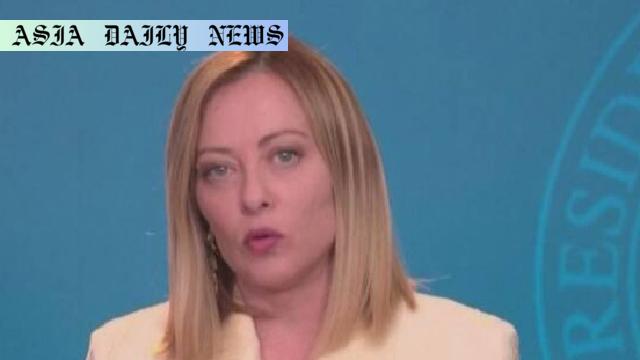Meloni Investigation: Italian PM Giorgia Meloni under scrutiny for deporting Libyan man wanted by the ICC on war crimes charges.
Italian PM Giorgia Meloni and three other officials are under investigation.
The investigation surrounds the deportation of a Libyan man wanted by the ICC.
The decision to return the man instead of cooperating with the ICC has sparked controversy.
Reports speculate political motivations like Libya’s immigration cooperation.

Introduction
Italy’s Prime Minister Giorgia Meloni has come under intense scrutiny as prosecutors launch an investigation against her and three other government officials. The inquiry centers around the deportation of a Libyan man who was wanted by the International Criminal Court (ICC) on charges of crimes against humanity and war crimes. This revelation has drawn widespread debate on Italy’s compliance with international legal norms and the motivations behind its controversial actions.
The Incident: Deportation of a War Crimes Suspect
The case involves a former Libyan official who managed prison facilities in his home country. The ICC had issued an arrest warrant for the man due to alleged involvement in crimes against humanity and war crimes. According to the ICC, the suspect was detained in Italy on January 19. However, instead of cooperating with the ICC and transferring him to The Hague for trial, the Italian government chose to deport him back to Libya.
Meloni’s Defense
In a video posted on social media, Prime Minister Meloni defended the government’s decision, citing procedural shortcomings on the ICC’s part. She stated that the court failed to adhere to proper protocols, which led the administration to expel the individual rather than facilitate his surrender to the ICC. According to Meloni, the choice to deport him was lawful and aligned with national interests.
Speculation on Political Motivations
Western media have raised questions about the motivations behind this decision, with speculation pointing to Italy’s economic and political relations with Libya. Observers theorize that the government might have prioritized maintaining Libya’s cooperation in combatting illegal immigration, an issue Italy has been grappling with for years. These reports have fueled concerns about Italy placing political considerations above international justice.
The Broader Context of ICC Member Cooperation
This incident is not an isolated case; it underscores a broader trend of certain ICC member nations hesitating to adhere fully to their legal obligations. Historically, some member states have resisted the ICC’s efforts due to political or diplomatic concerns, which undermines the court’s mission to hold perpetrators of international crimes accountable.
Potential Consequences for Italy
If the Italian government is found to have violated international legal standards, it could face criticism and possible sanctions from the international community. Additionally, the investigation could tarnish Italy’s reputation as a staunch advocate for democracy and human rights, especially within the European Union. On a domestic level, this development could have political repercussions for Giorgia Meloni’s administration, potentially affecting her government’s stability.
Conclusion
The investigation into Giorgia Meloni and her government’s actions is a critical test of Italy’s commitment to international law and cooperation with global institutions like the ICC. As this case unfolds, it serves as a stark reminder of the delicate balance governments must strike between national interests and adherence to international justice standards.
Commentary
The Complexity of International Law
The investigation into Giorgia Meloni’s actions highlights the increasingly intricate dynamics of international law and national sovereignty. While the ICC represents a vital tool in addressing global injustices, procedural missteps or perceived overreach can significantly strain its relationships with member states. Situations like these bring to light the ongoing challenges of harmonizing international obligations with domestic priorities.
Balancing Justice and National Interest
The decision to deport the Libyan suspect rather than hand him over to the ICC speaks volumes about Italy’s current political calculus. While Meloni cites procedural errors on the part of the ICC, it’s clear that broader considerations—such as maintaining Libya’s cooperation on migration—might have played a role. This raises the pressing question: Should national interests ever supersede international justice?
Italy’s Role in Upholding Global Justice
As a prominent EU member and ICC signatory, Italy has a unique opportunity to demonstrate its dedication to upholding international norms. This case serves as a litmus test for its commitment to the rule of law. If handled improperly, it could erode Italy’s standing within the international community, setting an unfortunate precedent for other nations.
Looking Ahead
Ultimately, this investigation holds lessons not only for Italy but for the global community as a whole. It underscores the need for strong, transparent institutions that can bridge the divide between international mandates and national governance. Only by addressing such challenges with integrity and foresight can the global community ensure the consistent application of justice across borders.


